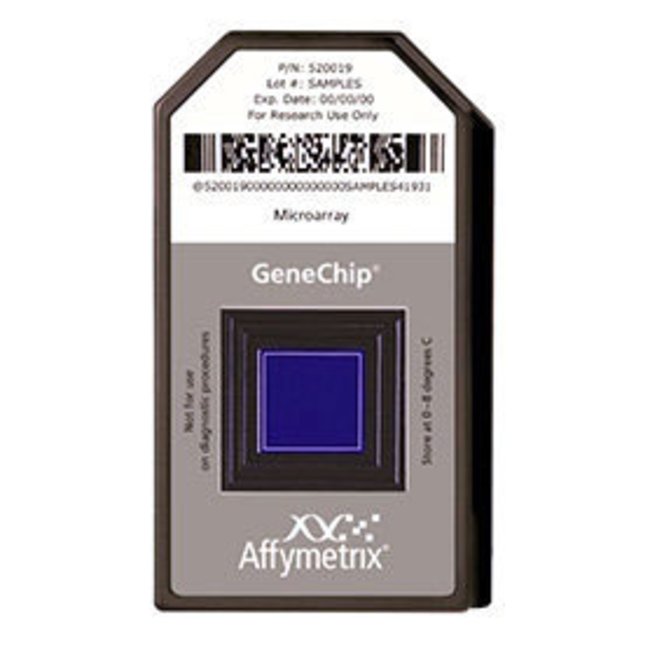GeneChip™ miRNA 4.0 Array
Catalog number: 902411
Description:
Many diseases, including cancer, are frequently described as diseases of disordered gene expression. It is estimated that more than 30% of protein translation of coding genes is regulated by miRNA. There is also a large amount of growing evidence suggesting miRNA interacts with long non-coding RNA in the signaling networks that regulate alternative splicing events, which impacts cellular processes such as apoptosis, proliferation, and differentiation– all of which have shown to be causative elements in diseases such as cancer.
Measuring the changes in these critical nodes of regulation is extremely important for deciphering the biological context of differentially expressed genes. This array design is a powerful tool for studying the role of small non-coding RNAs and their involvement in a broad spectrum of developmental and physiological mechanisms.
To keep pace with the discovery of new and novel miRNA, we are pleased to offer the GeneChip™ miRNA 4.0 Array to our growing catalog of miRNA arrays. This array offers updated content with the same high performance as the previous-generation array.
GeneChip miRNA 4.0 Arrays help bring you closer to biology with:
• Comprehensive coverage – Designed to interrogate all mature miRNA sequences in miRBase Release 20
• Easily correlate miRNA results – Analysis files contain host gene ID, predicted and validated miRNA target genes, and clustered miRNA information
• Easy analysis – Analyze human, mouse, rat, or every miRNA for all species using the same array
• Low sample input – Requires as little as 130 ng total RNA
• Simple, fast, and free analysis solution – Coupled with Expression Console™ Softwareand Transcriptome Analysis Console (TAC) Software, researchers have a complete solution from data to decision-making in minutes
Specifications:
|
Array Format: |
array cartridge |
|---|---|
|
Array Type: |
miRNA profiling |
|
Number of Arrays: |
2 Arrays |
|
Product Line: |
GeneChip™ |
|
Product Size: |
2 arrays |
|
Species: |
All Organisms, Human, Mouse, Rat |

